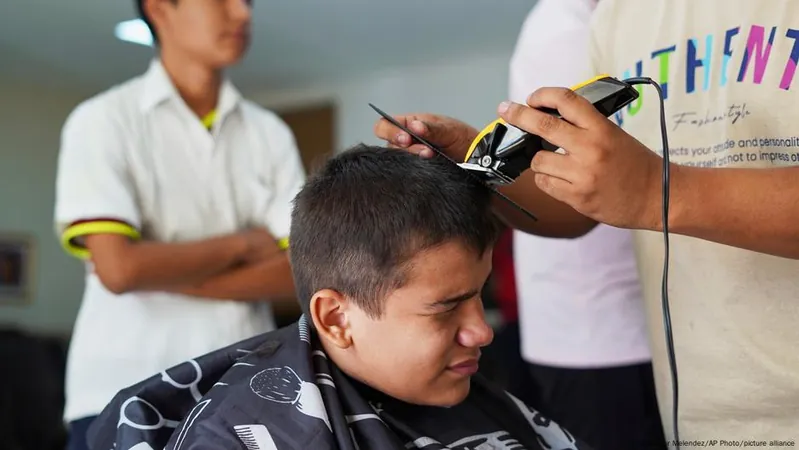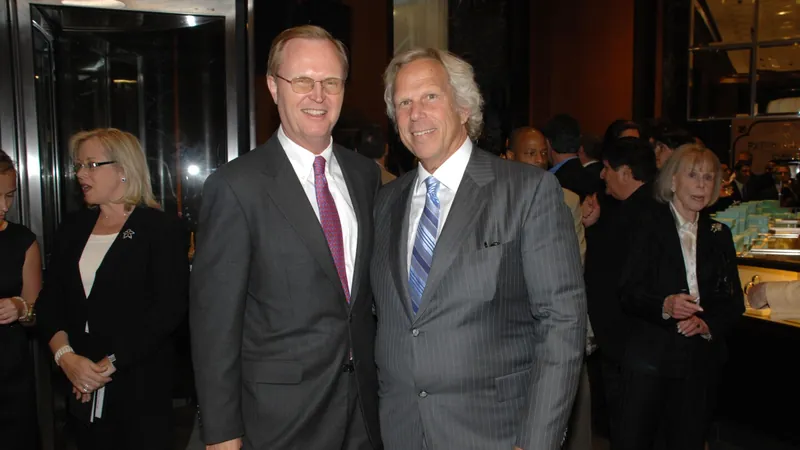
El Salvador Schools Enforce Military-Style Discipline: What's Behind the Controversy?
2025-08-23
Author: Ying
Strict New Rules Take Over El Salvador's Public Schools
Students in El Salvador's public schools are experiencing a dramatic overhaul as strict discipline rules come into effect, mandating military-style haircuts, pristine uniforms, and respectful greetings for teachers. This move has sparked heated debate among educators and unions.
The Push for Order and Discipline
Under the directive of recently appointed Education Minister Karla Trigueros, a high-ranking military officer, schools are now required to implement these rigid standards. The rules stipulate that principals must greet students daily at the entrances of over 5,100 schools. More than just a formality, this greeting sets the tone for a new era of education.
Trigueros emphasized that students need to present themselves in "clean and tidy uniforms" with haircuts that align strictly with the guidelines—boys are required to keep their hair closely cropped. Noncompliance will be treated as a serious violation of administrative responsibilities.
A Surge in Barbershop Business and Civic Pride
With the new regulations in place, barbershops across the nation have seen a surge in customers as students line up to comply. Many young people have taken to social media, posting videos of their dramatic haircuts under the new mandate.
Additionally, the new rules introduce "Civic Mondays," weekly events designed to promote national pride and discipline. These 30-minute ceremonies will include flag rituals, the national anthem, prayers, and presentations on historical figures, all aimed at fostering a stronger national identity.
Concerns Over Militarization of Education
Despite the government's push for order, many educators are raising alarm bells. Teachers' unions are expressing deep concerns that these measures signal a worrying trend toward the militarization of the education system. The Salvadoran Teachers' Front labeled the initiative as a regression to the times of military dictatorship.
Educators fear increased abuses of power could lead to harsher treatment of both students and instructors. Meanwhile, some factions within the teaching community advocate for reforming existing laws that hinder the enforcement of discipline.
A Government Under Fire for Autocratic Tendencies
These sweeping changes come amid a backdrop of escalating authoritarianism under President Nayib Bukele, whose administration is popular for its tough stance on gang violence, which has significantly reduced crime rates. But this popularity is clouded by accusations of repression and diminishing freedoms.
As the Bukele administration faces scrutiny—especially after the exit of the prominent anti-corruption group Cristosal—the future of education and civic life in El Salvador remains uncertain. Is this new direction a necessary step toward progress or a step backward into a more authoritarian regime?



 Brasil (PT)
Brasil (PT)
 Canada (EN)
Canada (EN)
 Chile (ES)
Chile (ES)
 Česko (CS)
Česko (CS)
 대한민국 (KO)
대한민국 (KO)
 España (ES)
España (ES)
 France (FR)
France (FR)
 Hong Kong (EN)
Hong Kong (EN)
 Italia (IT)
Italia (IT)
 日本 (JA)
日本 (JA)
 Magyarország (HU)
Magyarország (HU)
 Norge (NO)
Norge (NO)
 Polska (PL)
Polska (PL)
 Schweiz (DE)
Schweiz (DE)
 Singapore (EN)
Singapore (EN)
 Sverige (SV)
Sverige (SV)
 Suomi (FI)
Suomi (FI)
 Türkiye (TR)
Türkiye (TR)
 الإمارات العربية المتحدة (AR)
الإمارات العربية المتحدة (AR)